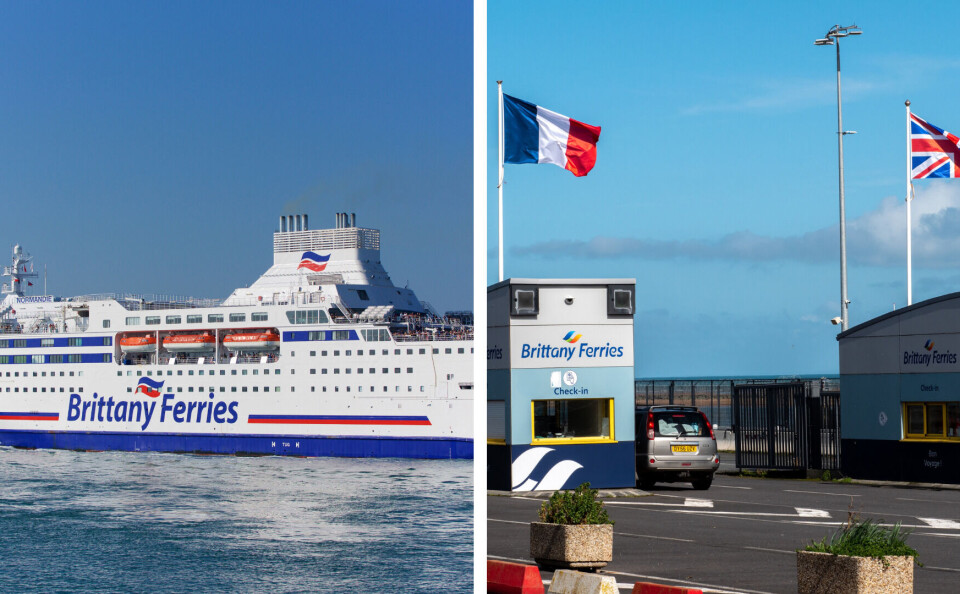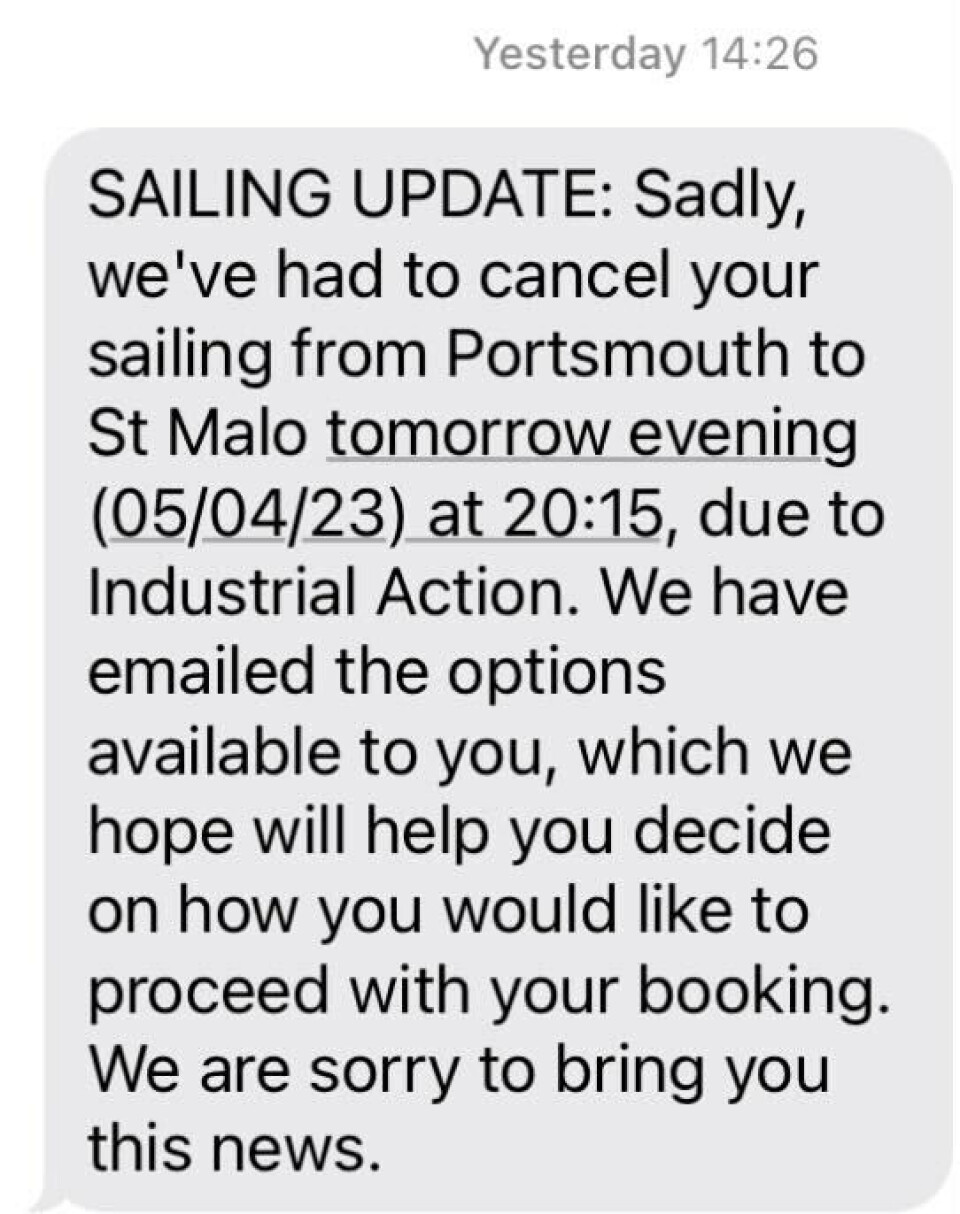-
Exemption from fees to register electric car to end across most of France from May
Applying for a carte grise will soon become more expensive
-
Why you may see a low-flying helicopter near you in west France
Residents of the Loire-Atlantique region may spot the aircraft until at least the end of May
-
Proposal to end 10% tax allowance for retirees in France: Key points
The idea - which has been suggested as a way to reduce the 5.8% budget deficit - is being hotly debated
Second-home owner frustration at UK-France ferry cancellations
Disruption linked to strikes in France comes amid fears of fresh border delays at ports over the Easter weekend

Pension reform strikes have caused several ferry cancellations between the UK and France this week.
Brittany Ferries scrapped four services on Tuesday (April 4) and Wednesday (April 5).
Journalist Nick Jenkins told The Connexion he was among the victims of the disruption.
He was booked on the Portsmouth-Le Havre boat on Tuesday, which was cancelled. Mr Jenkins was put on a Wednesday midday service but had to reschedule because he couldn't make it to the port in time. He then reserved a place on the Portsmouth-Saint-Malo ferry later on Wednesday, but that was cancelled, too.
Mr Jenkins has now booked himself on another ferry, this time from Portsmouth to Cherbourg on Wednesday.

Speaking to The Connexion on Wednesday morning, he was hoping there would be no further disruption.
For those who live far from the English Channel, chopping and changing services in such a short time can be incredibly stressful, and it can sometimes be impossible to adapt to the alternative services offered.
“Travelling all the way from Yorkshire, it’s not easy to make a change like that,” said Mr Jenkins, who is hoping to visit their home in the Dordogne to spend Easter in the French countryside.

But he praised Brittany Ferries for quickly informing him by text about the cancellations and responding rapidly about new bookings.
“They’re probably under immense pressure, having to change hundreds of bookings so quickly,’ he said. “We saw some of the cabin slots disappear in front of our eyes as we were booking the trip.”
Despite the rescheduled ferry being more expensive to book, the company did not charge extra fees to those changing their plans.
Read also: Updated: Dates and sectors of upcoming pension strikes in France
More disruption over Easter?
Brittany Ferries said cancellations this week were all related to French pension reform strikes.
It said services over the weekend to France from Portsmouth and Plymouth had not so far been affected
The company did warn however that services could be impacted if strike action by port workers was extended.
Even if French industrial action does not cause further disruption over the Easter weekend, there are fears of a repeat of the massive delays last weekend at Dover, which the port blamed on the volume of travellers and increased post-Brexit passport checks.
Once in France, there is also the ongoing problem of fuel shortages, caused by French oil refineries being blocked.
Petrol stations in the west and south of France have been worst hit over recent weeks.
But the picture is reportedly improving.
Newspaper Le Figaro said, as of Monday (April 3), around 10% of stations did not have either petrol or diesel, down from around 15% a week ago.
The Connexion contacted P&O Ferries, the Port of Dover and DFDS about possible Easter weekend disruption, but they have not yet responded to our calls.
Read more: France travel wrap: Ferries cancelled and new Paris-NYC flights
Will things get better at Dover?
Both the UK and the EU are aiming to bring in digitised border controls, to improve security and decrease hassle.
For travellers coming to France from the UK, the Entry/Exit System (EES) will remove the need for passport stamps to check how long somebody has stayed in the EU (as a reminder, you can only stay 90 in 180 days if you do not hold an EU residency).
The scheme is closely tied to Etias, which will see those entering the Schengen Area from visa-waiver countries (such as the UK, US, or Australia) will have to pre-apply for approval.
The EES and Etias systems work in tandem and have faced many delays to their implementation, which is now slated for some time in 2024, although French President Emmanuel Macron wants the rollout to happen after the Paris Olympics.
You can read about the EES and how it will work here, which also explains how Etias will function alongside the system.
Whilst initially, the EES system is expected to cause delays at entry points into France (air and sea ports alongside the Eurotunnel), the ultimate aim is to ease congestion and remove the need for pastport stamping.
Related articles
Here is what we know about the UK’s new digital border scheme
























